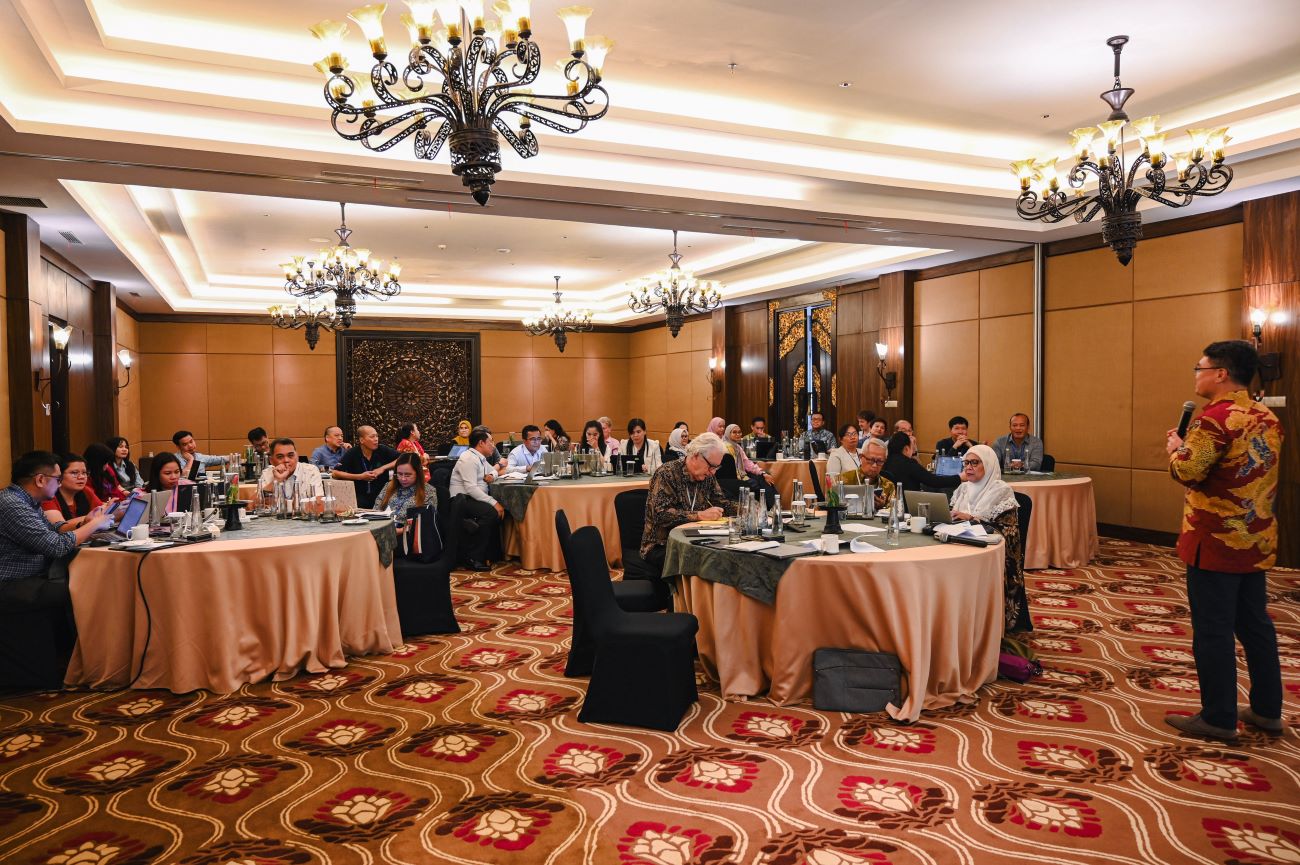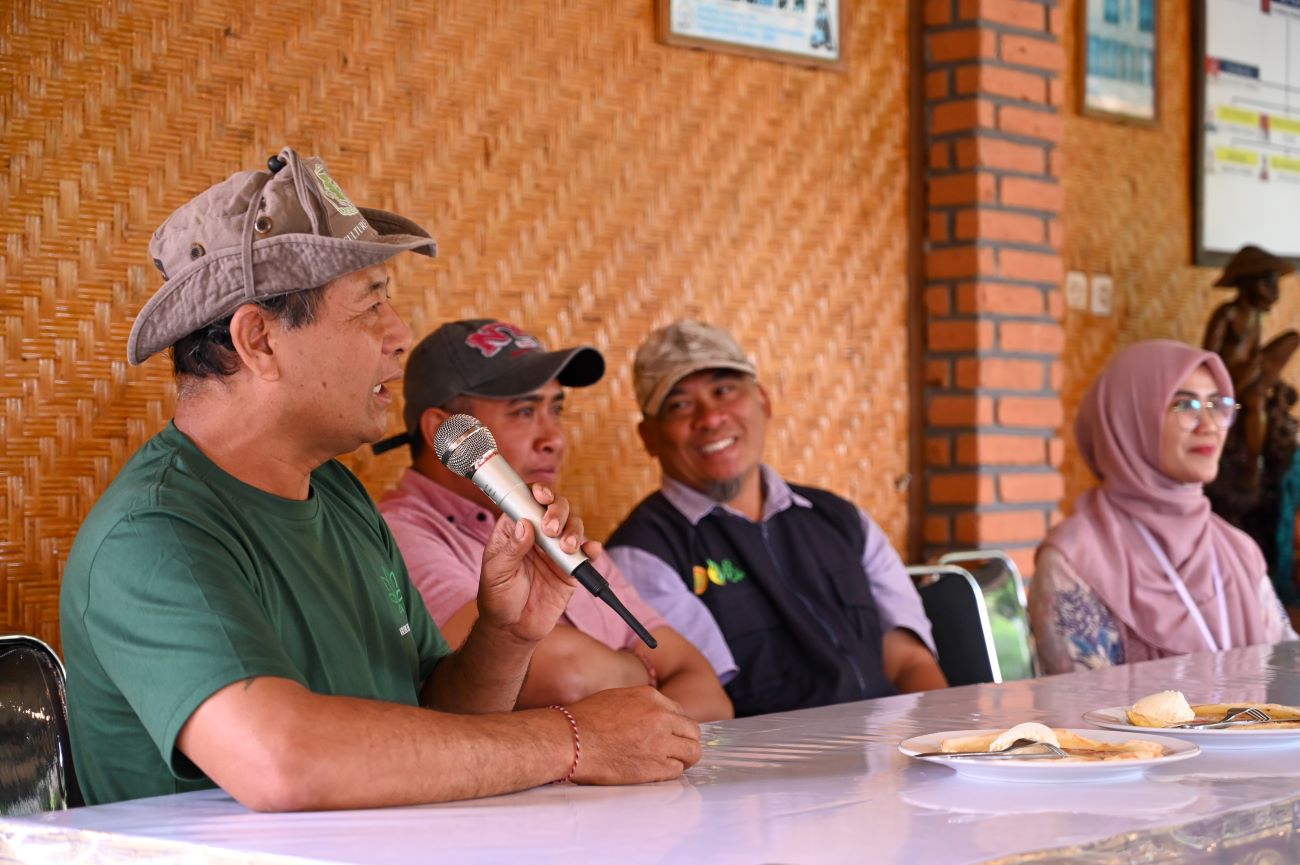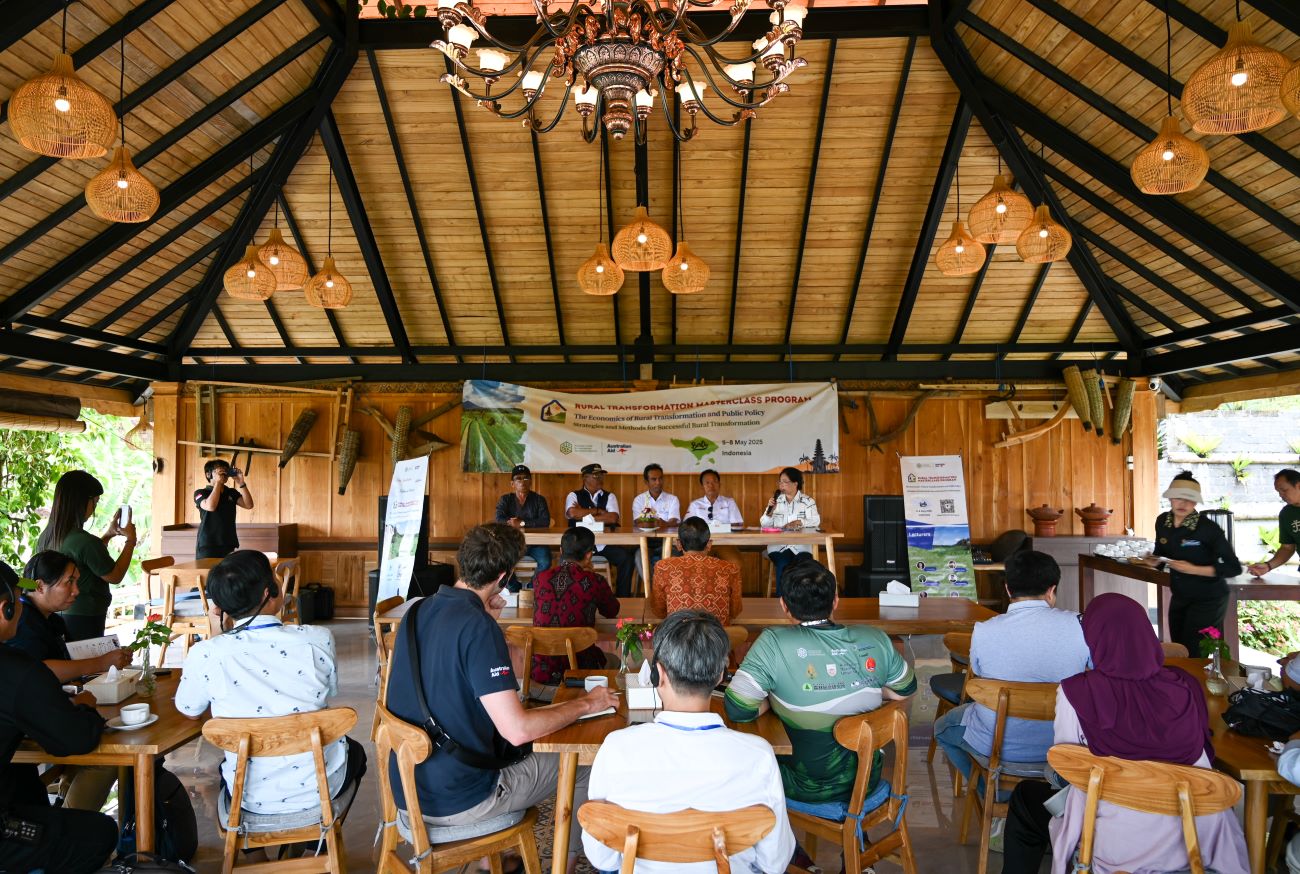Twenty-nine postgraduate students, academics, policymakers and policy practitioners from Cambodia, Indonesia, Laos, the Philippines and Vietnam came together in Bali, Indonesia earlier this month to learn and share how to seize opportunities for rural transformation and sustainable development.
The Rural Transformation Masterclass is an outcome of an ACIAR-funded project that studied changes in policies, institution and investments to understand what drives successful rural transformation in the Indo-Pacific region. ACIAR organised the masterclass, in collaboration with the Crawford Fund, the Indonesian Agricultural Research Alliance (APPERTANI), Indonesian Agricultural Research Alliance (APPERTANI) and the Indonesian Center for Agricultural Socio Economic and Policy Studies (ICASEPS).
'Rural transformation is crucial for achieving inclusive economic growth and reducing poverty in the agri-food sector,' said ACIAR Acting Research Program Manager for Agribusiness, Mr David Shearer.
He said coordinated efforts from governments, businesses, researchers, lecturers, non-government organisations and local communities are necessary to achieving successful and sustainable rural transformation.
'This masterclass equips agricultural policy influencers from the region with foundational tools for sustainable rural transformation, which they can reflect upon and refer back to in their capacity and contribution to achieving this goal,' added Mr Shearer.
Participants learned from experts from top institutions in Australia, Indonesia and China about cutting-edge economic frameworks, evidence-based policy interventions and strategic planning tools essential to driving sustainable change in rural communities.

Participants also gained a deeper understanding of the practical realities of rural development by linking theory with local context. In the villages of Candi Kuning and Jatiluwih, they engaged with Balinese farmers, extension officers, village government representatives and other stakeholders. The discussions gave them firsthand insights about local agricultural projects, rural enterprises, institutional arrangements and community developments.
In Candi Kuning, pioneers of imported vegetables cultivation and organic farming shared how the strong growth of high-end horticulture sectors from hotels and restaurants enabled technological changes for farmers.

In Jatiluwih, participants learned about how the traditional leader, village heads, head of water management system and the manager of tourism in the area preserved the village's cultural heritage and agricultural practices while responding to the demands of tourism.
Participants said the masterclass gave them valuable insights into effective strategies, policies and methods for sustainable rural development.
'Rural transformation requires collaboration between various line ministries to design an effective ecosystem and identify key enabling actors,' said Agriculture Policy Analyst at ICASEPS, Dr Wahida Maghraby.
'The diverse backgrounds of the participants were instrumental in the successful exchange of best practices, as it allowed them to pinpoint rural transformation programs that are both relevant and applicable to their specific country contexts.'
'This experience enhanced my expertise in shaping policy recommendations, finding solutions and improving stakeholder coordination to support rural transformation in my country,' said Ms Le Hoa Nguyen, participant from the Institute of Strategy and Policy for Agriculture and Environment of Vietnam.

The participants also gained opportunities to network with other agricultural policy-makers from the region and learn from real-life examples in Indonesia and case studies from different countries.
Dr Maghraby said the combination of in-class sessions and field trips proved to be highly effective, enhancing the overall learning experience.
'We not only learned the theory, such as the connection of rural transformation to gender, sustainability, trade and agribusiness, but we also witnessed firsthand how rural transformation works in Bali, including the success factors like strong stakeholder partnerships,' said Dr Kimchhin Sok, a participant from the Royal University of Agriculture of Cambodia.
'I also gained a deeper understanding of how I can apply these in the context of development of structural economics frameworks for supporting the aligned green rural transformation policy in my country.'
Dr Dong Wang from the University of Queensland and the University of Melbourne said he hoped that through four days of study, participants have gained a comprehensive understanding of the urgency and importance of accelerating rural transformation. The curriculum included both classical and cutting-edge theories, and methods for problem diagnosis and analysis. 'They will now be able to connect with the realities of their own countries and propose actionable solutions for their governments,' he said.
'The Masterclass is an innovative approach of taking successful outputs of a research partnership, engaging with next users as part of a proactive approach to delivering sustainable impact over the long term through improved evidence-based policy influence,' said Mr Shearer.
Masterclasses provide a mechanism to bring together peers from across a range of different contexts to improve approaches to rural transformation, which is key to economic development in many of our partner countries.
Learn more about this project.






